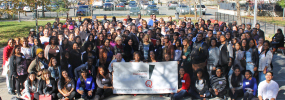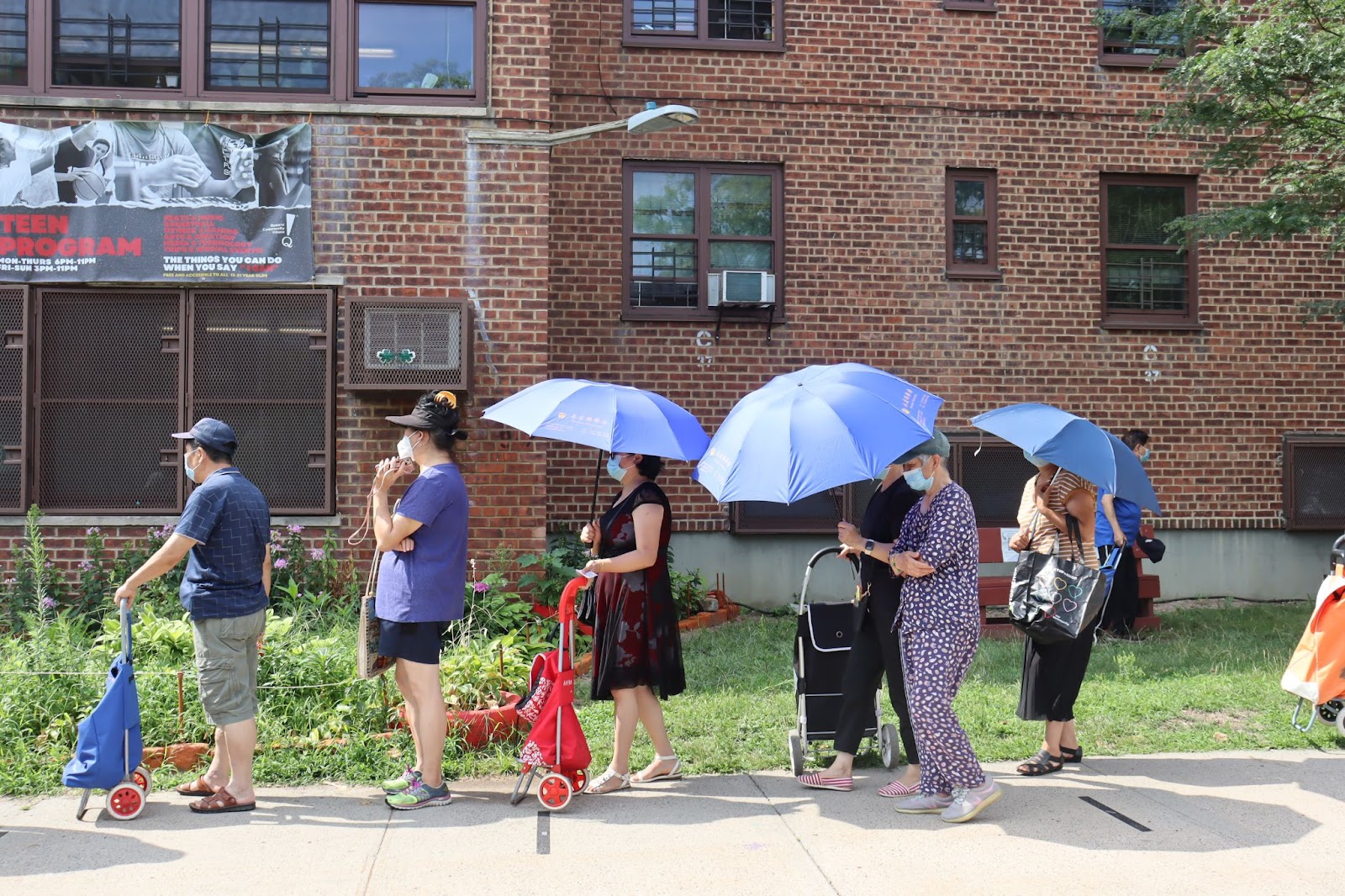Apoyo Queens Community House

Queens Community House brinda a las personas y las familias las herramientas para enriquecer sus vidas y construir comunidades saludables e inclusivas.

Epicenter NYC: Seniors continue to be the most vulnerable in this new phase of Covid | August 2022: Food insecurity appears to be gearing up to be the next pandemic, and like with Covid-19, seniors are the most vulnerable population. An increasing number of seniors are lining up at food pantries, hoping a free bag of groceries will help them to save extra money for rent, bills and medication. Epicenter’s community reporter Andrea Pineda-Salgado spoke to three community leaders: Zani Simmons, community engagement director at Queens Community House’s Pomonok Community Center; Mary Archana Fernandez, director of family support services at the South Asian Council for Social Services (SACSS); and Helen Ahn, director of Korean Community Center (KCS) senior adult services, about struggles seniors have been facing trying to access food.
Living on a fixed income
One of the biggest hurdles seniors face in accessing food is their income. Many seniors depend fully on their retirement income such as social security (which is based on lifetime earnings) or supplemental security income (SSI), which are often not enough. The maximum SSI payment is $841 per month for an individual or $1,261 per month for a couple.
“A lot of our clients don’t have access to benefits like food stamps, a lot of them have social security benefits but it is barely enough to pay their rent,” Fernandez says. “Others are living with family and it is not enough for them to get by or to buy healthy food that nourishes their body.”
Jay, 65, visits the Pomonok Food Pantry each week. He lives alone and the money he receives from social security isn’t enough. He can’t work due to a hearing problem and is recovering from cancer, so he relies heavily on the food pantry.
“The price of the food has gone up very dramatically, so I get some food for supplement. I don’t have a lot of money coming in, I depend on my retirement benefits but it is very limited,” he says. “For example eggs, before it was $1.50 per dozen, now it is like $4, chicken is also up. This is a daily need, it’s not a luxury like expensive shoes or bags, it’s food necessary for daily life.”
It is worse for seniors who immigrated to the U.S. much later in their lifetime, some of whom are undocumented and aren’t eligible for any type of assistance.
Alejandro Blanco, 80, recently came from Mexico to visit his daughter on a three-month visa. During his visit he became ill and spent two months in the hospital, during which his visa expired. However, he decided to stay in New York to be closer to family and be treated by doctors here in case he gets sick again.
“I am huddled over on line every week waiting to get some food. Here they always give me rice, onion, potatoes and milk. Because I cannot work I have to come here and settle for the food I receive here,” he says. “My daughter is the one who works and takes care of me, and I come here to help with food.”
Because of his status, Blanco does not qualify for any federal benefits and is fully dependent on his daughter.
“Seniors who are 65 plus and undocumented unfortunuatly do not qualitfy for SSI or any government benefits. They are unable to even get SNAP benefits,” Fernandez says. “A lot of times they are 100% either dependent on food pantry services, family members or nonprofit organizations. If they are undocumented they are living in extreme poverty unless they have family or someone to support them.”
Other seniors have had to re enter the workforce. Simmons has noticed this trend among the seniors who come to the Pomonok Food Pantry.
“Some of these folks are taking on part-time jobs because due to the pandemic the young folks they lived with lost their jobs,” she says. “We have seniors that are now working at a gas station, just to help bring that added income.”
Getting out of the house is a hurdle itself
For many seniors, physically accessing food can be challenging as well, simply getting to a senior center to access much-needed services takes up a lot of energy.
“Mobility [is a big issue], whether it is a physical mobility problem, like they are homebound or a transportation problem. One of our seniors comes to the senior center from Jamaica [to Flushing] by bus and subway. It takes her an hour and a half each day,” Ahn says. “But [she needs] the food and after losing her husband, it is the most comfort she can have.”
Many Asian seniors visit the centers Ahn and Fernandez work at. Both have noticed that the rise of Anti-Asian hate has prevented many seniors from leaving home. From March 2020 to December 2021, six out of 10 reports of Anti-Asian hate in the United States were reported by those ages 60 and up.
“After coming to our senior service, [the same senior from Jamaica] goes back home afraid of the surge in Anti-Asian hate crimes,” Ahn says. “She says that during her commute to the center, she hears some curses from people on the bus. In her daily life she experiences the micro-aggressions of Anti-Asian hate crimes.”